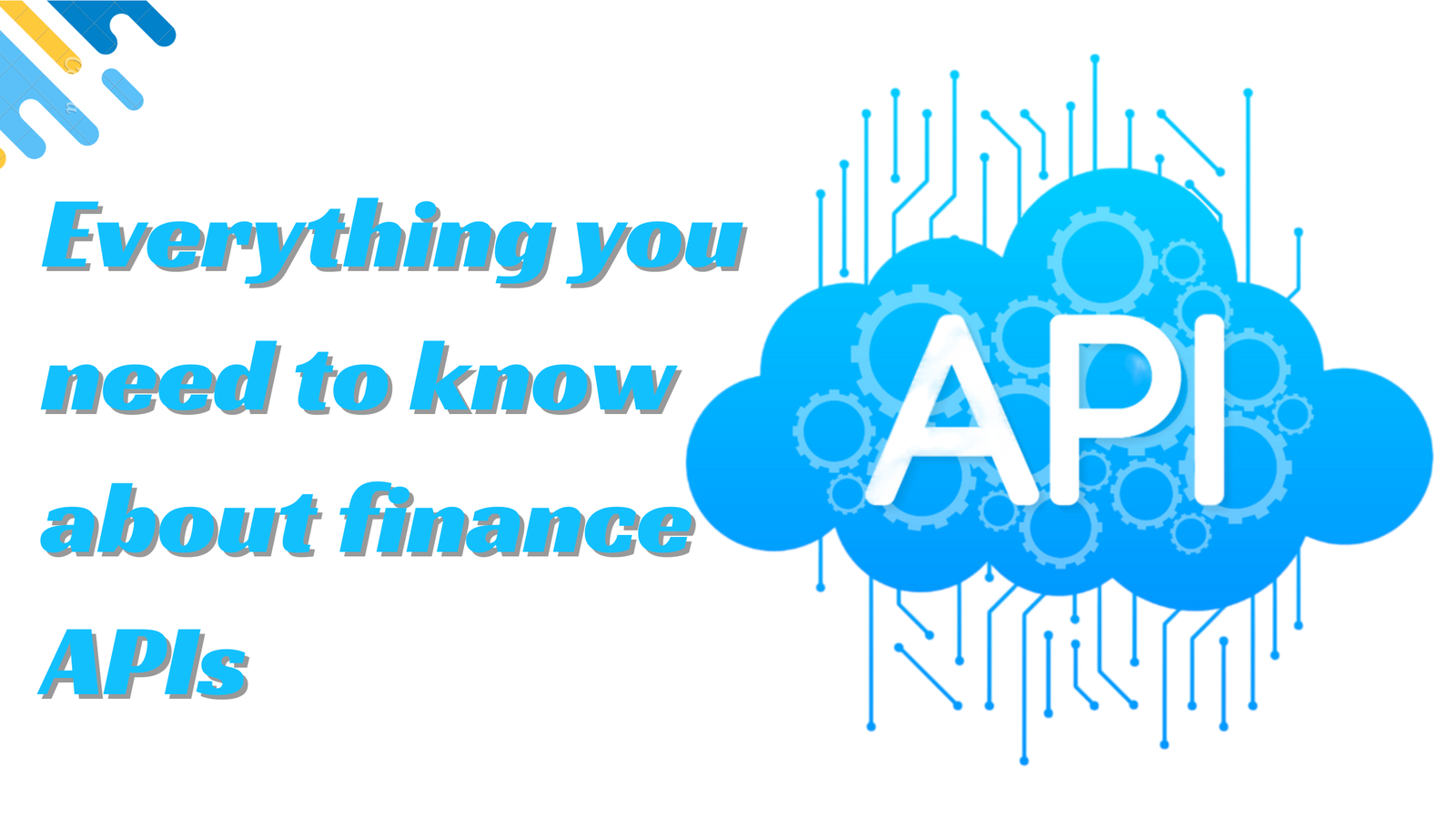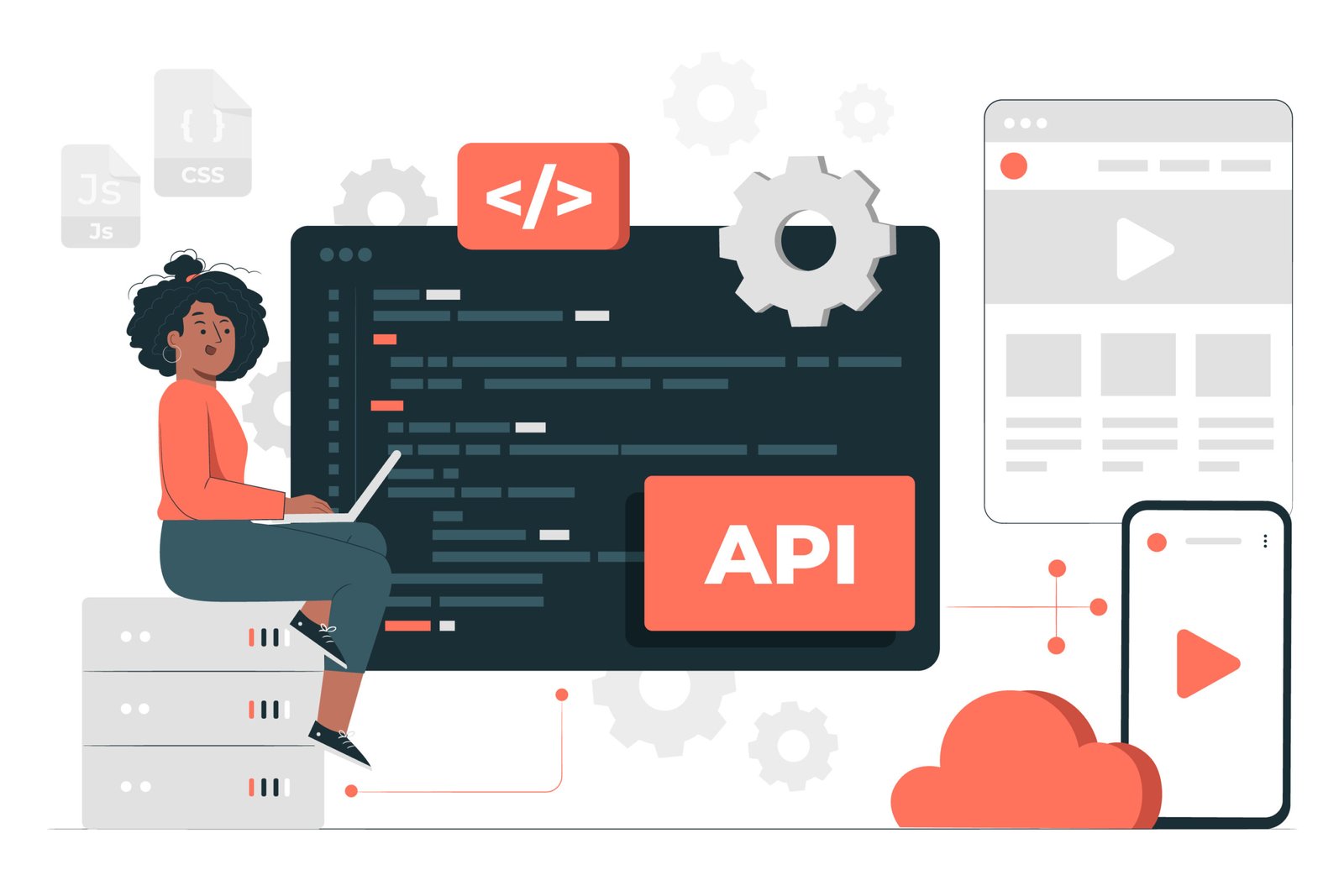Everything you need to know about finance APIs
At a time when finance technology is rapidly advancing, staying abreast of technological innovations is of great importance. One such advancement that has had a dramatic effect is the creation and application of finance APIs (application programming interfaces). For financial analysts who closely follow market trends, understanding finance APIs is vital.
This post seeks to demystify them while exploring their types, benefits, challenges, and potential future applications.
Types of Finance APIs
Fintech APIs can be broken down into various types, each serving different functions within the financial ecosystem:
Payment Gateways: This finance API facilitates transactions between merchants and customers, ensuring secure transfers of money. They are crucial for e-commerce websites and online businesses.
Banking APIs: Banks frequently offer APIs that enable third-party developers to gain access to banking services and customer data, with functionality like account management, transaction history storage, and fund transfers available through them.
Investment and Trading APIs: These APIs facilitate the creation of apps and platforms that enable users to trade stocks, bonds, and other securities. In addition, these provide real-time market data, financial news updates, and analytics services.
Credit and Lending APIs: These APIs streamline the processes associated with credit scoring, loan applications, and credit report services to facilitate faster decision-making for lenders and easier loan access for borrowers.
Cryptocurrency and Blockchain APIs: With the rise of digital currencies, these APIs give developers tools for accessing blockchain technologies, conducting cryptocurrency transactions, and gathering market data on these assets.
Each type of finance API plays an essential role in connecting traditional financial operations to digital life, providing more streamlined, accessible, and flexible services.
Importance of Finance APIs
Driving Innovation and Disruption
Finance APIs are catalysts for innovation, empowering developers to create innovative financial products and services without having to reinvent the wheel. By providing access to a wide range of economic data and functionalities, these APIs fuel the development of fintech solutions such as payment gateways, personal finance management apps, robo-advisors, peer-to-peer lending platforms, and more.
Moreover, finance APIs facilitate collaboration between traditional financial institutions and fintech startups, fostering a vibrant ecosystem where incumbents and disruptors can leverage each other’s strengths to deliver better value to customers. This collaboration often leads to the emergence of groundbreaking solutions that address longstanding challenges in areas such as banking, investing, insurance, and wealth management.
Enhancing Efficiency and Streamlining Processes
In a world where time is money, finance APIs streamline processes and eliminate inefficiencies by automating routine tasks and enabling seamless data exchange between different systems. Whether it’s accessing account information, initiating payments, conducting risk assessments, or performing compliance checks, APIs allow businesses to automate workflows and accelerate decision-making processes.
For financial institutions, APIs offer a way to modernize legacy systems and adapt to the demands of the digital age without undergoing costly and time-consuming overhauls. By exposing core banking functionalities as APIs, banks can unlock new revenue streams, improve customer experiences, and stay competitive in a rapidly evolving market.
Enabling Personalization and Customization
One of the key benefits of finance APIs is their ability to enable the personalization and customization of financial products and services. By aggregating data from multiple sources, APIs provide businesses with valuable insights into customer behaviour, preferences, and economic needs. Armed with this information, companies can deliver tailored experiences that resonate with individual users, thereby enhancing customer satisfaction and loyalty.
For consumers, finance APIs empower them to take control of their finances by accessing a wide range of financial services through third-party applications. Whether it’s monitoring spending patterns, setting savings goals, or managing investments, APIs put the power of economic management in the hands of the user, enabling them to make informed decisions and achieve their financial objectives.
Ensuring Security and Compliance
Despite the myriad benefits they offer, finance APIs also present challenges, particularly in the areas of security and compliance. Given the sensitive nature of financial data, APIS must adhere to stringent security standards and protocols to safeguard against unauthorized access, data breaches, and cyberattacks.
Additionally, finance APIs must comply with regulatory requirements such as GDPR, PSD2, KYC (Know Your Customer), and AML (Anti-Money Laundering) to ensure the protection of consumer data and maintain trust in the financial system. This requires API providers to implement robust security measures, encryption techniques, and access controls to mitigate risks and uphold compliance standards.
Challenges and Considerations
Integrating finance APIs into applications poses its own set of unique challenges for developers and businesses, which they must carefully navigate. Security must always come first, as handling financial transactions requires robust encryption that complies with financial regulations such as PCI DSS for payment processing, GDPR for data protection in Europe, or local laws. Ensuring reliability and scalability is of utmost importance in high-demand environments where performance issues could result in severe financial loss or break trust with customers.
Integrating APIs from different providers can create complications in maintaining interoperability and consistent user experiences, as well as the long-term viability of those providers, with any disruption due to policy changes or business continuity issues having direct ramifications on end-user services offered. Furthermore, understanding the cost implications associated with APIs is an integral component of budgeting and financial planning, as many APIs operate on pay-per-use models, which increase costs exponentially as usage grows.
The Future of Finance APIs
Finance APIs represent immense promise for further revolutionizing the financial services industry. Thanks to technological advancement and digitalization initiatives, APIs will only become more sophisticated over time and offer greater functionality and more tailored services. This not only helps with payments and data sharing but also supports complex financial decisions, risk analysis strategies, and investment strategies using artificial intelligence and machine learning algorithms.
As open banking frameworks gain popularity, finance APIs will drive increased competition and innovation between financial institutions, fintech startups, and tech companies, leading to more individualized and tailored financial products being made available to both consumers and businesses alike. Furthermore, this could enable greater financial inclusion for underserved or unbanked populations around the globe.
However, as API usage becomes more widespread it will require increased cybersecurity measures and regulatory compliance measures in order to safeguard sensitive financial data and guarantee a secure financial ecosystem. Furthermore, due to an expected rise in API numbers and vendors effective API management and standardization will become crucial in order to avoid fragmentation across services and platforms and maintain seamless interoperability among them all.
Finance APIs represent an exciting breakthrough for the financial sector. Their development promises not only to revolutionize how services are provided and consumed but also to reshape its structure and competitive landscape in years to come.
Conclusion
In the rapidly evolving landscape of finance technology, finance APIs have emerged as powerful tools driving innovation, efficiency, and personalized experiences. From enabling seamless transactions and streamlining processes to fostering collaboration and enhancing security, these APIs play a vital role in reshaping the financial services industry.
As businesses and consumers continue to embrace digital solutions, the importance of finance APIs will only grow. However, it’s crucial to address challenges such as security, interoperability, and regulatory compliance to ensure the continued success and trustworthiness of these APIs.
Looking ahead, finance APIs hold the promise of further revolutionizing the financial sector, fostering competition, and driving greater financial inclusion worldwide. With ongoing advancements in technology and the proliferation of open banking frameworks, the future of finance APIs is poised to deliver even more tailored, innovative, and accessible financial solutions.
FAQs:
1. What are finance APIs?
Finance APIs, or Application Programming Interfaces, are sets of protocols, tools, and definitions that enable different software applications to communicate and interact with each other, facilitating seamless integration of financial services and data.
2. What are the benefits of using finance APIs?
Using finance APIs enables businesses to drive innovation, enhance efficiency, personalize services, and ensure security and compliance. They also foster collaboration between traditional financial institutions and fintech startups, leading to the development of groundbreaking solutions.
3. How do finance APIs enhance security?
Finance APIs enhance security by implementing robust encryption, access controls, and compliance measures to safeguard sensitive financial data. They adhere to regulatory requirements such as GDPR, PSD2, KYC, and AML to ensure the protection of consumer data and maintain trust in the financial system.
4. What challenges are associated with integrating finance APIs?
Integrating finance APIs poses challenges related to security, reliability, scalability, interoperability, and cost management. Developers and businesses must navigate these challenges carefully to ensure seamless integration and consistent user experiences.
5. What is the future outlook for finance APIs?
The future of finance APIs looks promising, with ongoing technological advancements, increasing competition, and greater emphasis on financial inclusion. As open banking frameworks gain popularity, finance APIs will drive further innovation and reshape the competitive landscape of the financial services industry.



















